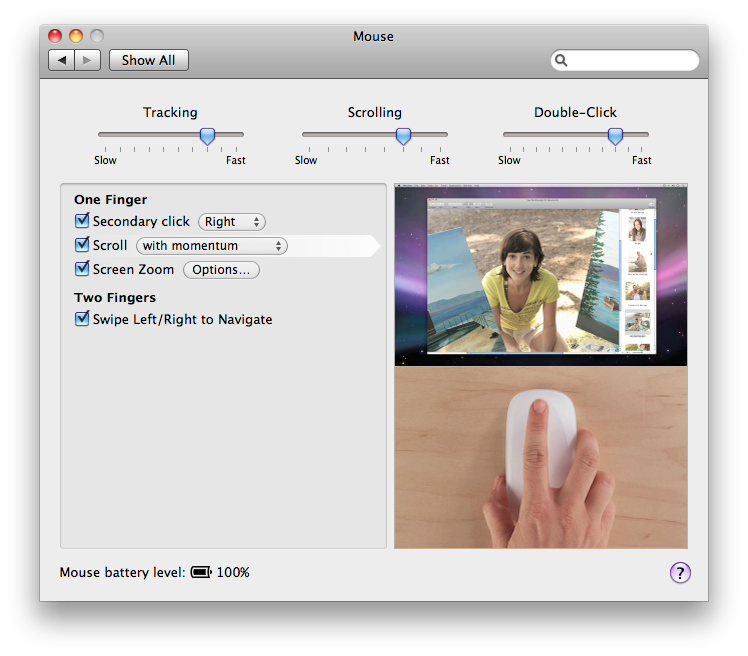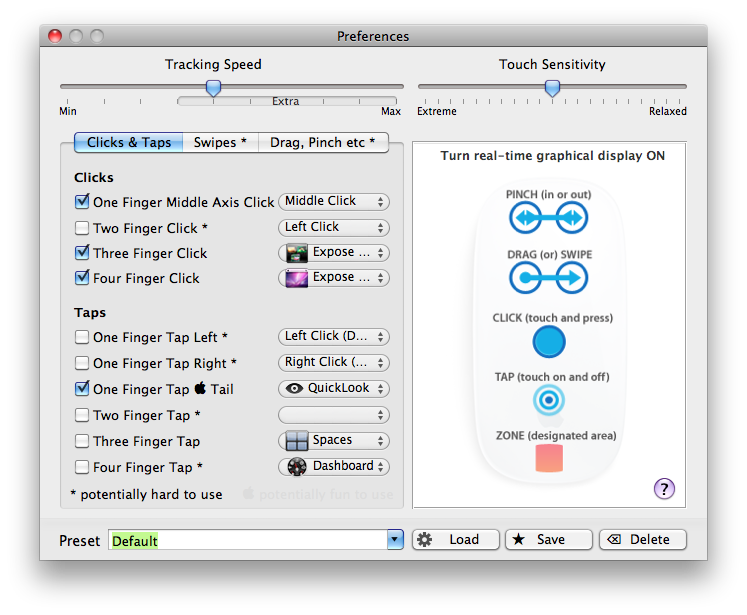Remember the ads for Kindergarten Cop? Kids pointing at Arnold's oversized biceps and he exclaiming, "It's not a tumor!" That's what keeps going through my head, only instead of Arnold's muscles it's an iPad. And it's my face superimposed onto his body saying, over and over, in my best faux Austrian accent, "It's not a computer!"

See that picture? The one just above this paragraph? I made that. I took an image from Kindergarten Cop and composited an image of Apple's latest device onto it. I did this on my MacBook Pro. I did this on my computer. You can't do this on an iPad.
When I think of a computer I think of a device used for making stuff. Images, websites, videos and music. These are all things I can create on my computer. A computer is a creative tool. A tool for self-expression.
An iPod, on the other hand, is not. An iPod is a device used for consuming stuff. You watch movies and listen to music on it. Maybe play some games. An iPod is an entertainment device.
Dude, It's an iPod
If you're wondering where the iPad fits into this picture, I can tell you, very plainly: it's an iPod.
Aside from the obvious onstage demos featuring people watching movies and playing games, there are a bunch of subtle cues that reinforce this fact.
For one, the iPad's default orientation is vertical, unlike a computer, but exactly like an iPod.
The fact that the iPad moniker so closely resembles that of the iPod is another hint that this is just a new kind of iPod. "Slate" or (my favorite) "Canvas" would have implied an inappropriate level of creative capability. iPad, connotations notwithstanding, hits just the right note and tells users exactly what this thing is for. I initially thought MacBook was a silly name, but now it strikes me as just fine. I suspect the same will happen with iPad.
Finally, the iPad has no camera. My computer has a camera on it. So does my phone. But the iPad, like other iPods, has no camera. While it does have a microphone, there seem to be very few ways to use the iPad to make stuff. And I think that's because it's made mainly for consuming stuff.
Just like an iPod.
So, Do I Want One?
When the iPhone came out it was clearly a game-changing moment. It was so new and amazing looking, I just had to have it. Of course it didn't hurt that I hated my current phone and my phone service provider passionately. But now I have a great phone. And a great computer that I love. And I've never been much of an iPod user. In fact, I never really used an iPod until it was built into my phone.
I will say, I am intrigued by the iPad interface. And if it were $300 I'd probably get one just for fun. But as it stands, I'm not impressed enough to pay the fairly high premium for what amounts to a fancy portable TV.
On the other hand, I keep thinking of all sorts of people I might like to get one for as a gift. My stepfather, for instance. He loves gadgets, but hates computers. He'd love an iPhone, but can't use AT&T. An iPad, though, might just be the thing. In fact, the iPad might just be the first computer for computer haters. (Of course without AT&T his iPad would have no Internet connection as my parents refuse to get broadband, but you get the general idea.)
The other thing the iPad looks to excel at is reading. Apple even claims it's "The best way to experience the web..." And I don't doubt it. From its very book-like aspect ratio and size to its resolution and reading capabilities, the iPad looks like it was made for reading stuff on. Someday I may end up chucking my physical book collection for a digital replacement — probably the next time I move — but for now I remain squarely a real book guy. Let's face it, there's something to be said for physicality, and books are kinda great just the way they are. Still, if there's anything that could tempt me to go digital, even if only partly, something like the iPad would be it. And reading is the one thing the iPad probably does better than anything I've got now. For me it's the most compelling reason to consider getting one.
The Kludgy Bits
In addition to not offering much in the way of unique functionality, there are too many areas in which the iPad fails to win me over to really consider getting one. That case, for one, is ridiculous. How is that thing a Jonathan Ive-designed accessory? It looks like the big giant three-ringed binders my mom would bring home from her government job for me to put my reports in. This is what I have to use if I want to watch a movie without holding the thing in my hand for two hours? Uh, we have a term for that in the business: it's called lame.

Keyboard accessibility should also prove useful, but the lack of mouse input means you'll still have to poke at the screen to do any clicking. The keyboard is clearly for text entry only. You won't be using this like a regular computer, at least not in its current incarnation. But then, as I've said already, it's not a computer.
The port of iWork seems like a bit of a misfire to me as well. It seems like this was more a proof of concept attempt to show how great desktop apps can work in the iPad's touch environment than anything particularly useful. Much more useful — to me anyway — would have been a port of the iLife suite. That would have been intensely cool, and iLife is something lots of people want to use. iWork is a much more marginal product aimed at the business market, which the iPad is not. An iLife would have been much more ambitious, but also more appropriate. And it would have positioned the iPad as more of a creative device it also might have highlighted the lack of camera, though. I hope that someday, however, iLife does get ported. That would go a long way towards making the iPad an appealing product to someone like me.
Finally, if I were to get an iPad, I'd want one with 3G. This will not only run me an extra $130 clams, I'll also incur yet another monthly data charge from AT&T. But wait. I already have a data plan with AT&T. Can someone please tell me why I have to buy another? If I add a computer to my home network my ISP doesn't charge me more. I don't need a separate new plan for that. Why is this not the case for my iPad. This just seems like a completely unnecessary money grab. And another barrier to entry for me.
It's Not All Bad
Despite my gripes, the iPad has much to offer conceptually. It's been said that the iPad itself isn't terribly revolutionary technologically speaking, but that what it represents is, and that what it represents is nothing less than a paradigm shift in personal computing. People who know a lot more than I do are proclaiming this the future of desktop computing and saying that iPad-style interaction is how many of us will soon work with computers. I don't dispute this claim. In fact I think it's pretty likely. While the iPad itself may not be a computer it has the potential to be much more than a large iPod. It has the potential to be a computer. And it could be a very interesting and popular one at that. There is little doubt that the iPad represents what Apple sees as the next logical step for the computing experience an it's evolution over the next five to ten years. They're thinking several steps down the line. And while I'm thinking and complaining about what the iPad is or isn't, they're thinkng about what it will be. And they're probably right.
In fact, now that I think of it, I probably should have called this article "It's not a Computer... Yet."
But my main hope, as a creative person, is that the focus of computing remains primarily one of creation. Computers are distinct from television in no small part because they are interactive and because you can use them to make stuff. I'd hate to see mainstream computing lose sight of this fact. The last thing people need is more ways to watch TV.






